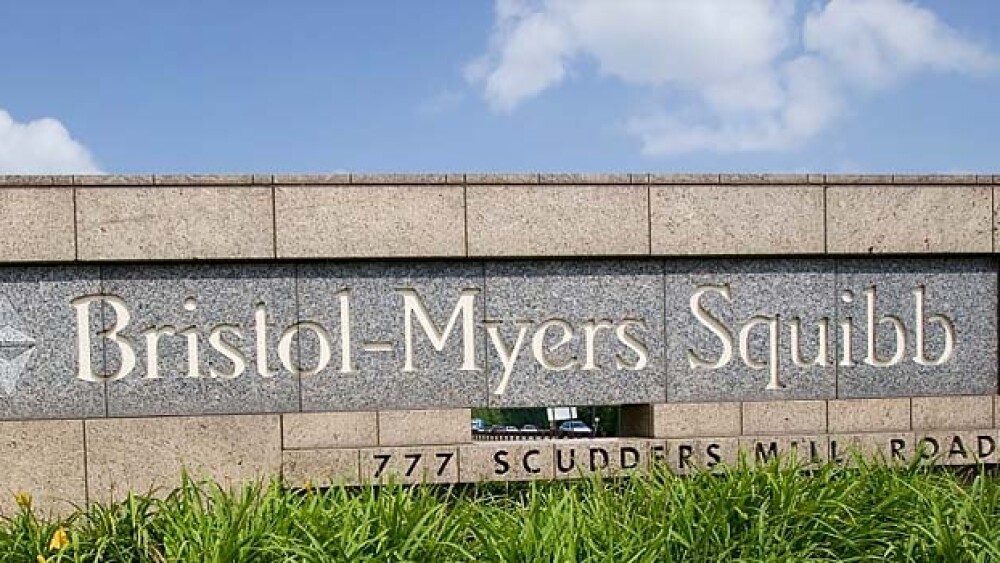The U.S. Food and Drug Administration (FDA) gave Bristol-Myers Squibb’s Opdivo (nivolumab) approval for metastatic small cell lung cancer (SCLC) for patients whose cancer has progressed after platinum-based chemotherapy and at least one other type of therapy.
The U.S. Food and Drug Administration (FDA) gave Bristol-Myers Squibb’s Opdivo (nivolumab) approval for metastatic small cell lung cancer (SCLC) for patients whose cancer has progressed after platinum-based chemotherapy and at least one other type of therapy.
The approval was based on data from the SCLC cohort of the ongoing Phase I/II CheckMate -032 clinical trial looking at Opdivo in patients whose disease progressed after platinum-based chemotherapy, the gold standard in chemotherapy. Of the 109 patients who received Opdivo after platinum-based chemo and at least one other previous line of therapy, 12 percent responded to treatment based on a Blinded Independent Central Review (BICR), regardless of expression of PD-L1. Twelve patients (11%) had a partial response and one patient (0.9%) had a complete response. The median duration of response (DOR) was 17.9 months. The drug was discontinued in 10 percent of patients and one dose was withheld in 25 percent of patients because of side effects. Serious side effects were seen in 45 percent of patients.
“At Bristol-Myers Squibb, we recognize the critical need to provide patients with cancer therapies that may offer more durable responses—particularly for those living with hard-to-treat, aggressive diseases like small cell lung cancer,” said Sabine Maier, development lead, thoracic cancers, Bristol-Myers Squibb, in a statement. “This approval builds on our heritage of bringing Immuno-Oncology therapies to patients with other types of thoracic cancers. It also reinforces our commitment to bringing transformative treatments to patients in urgent need of effective new options.”
SCLC is one of two primary types of lung cancer and makes up about 10 to 15 percent of all lung cancers. It is typically not detected until it has advanced and is a very aggressive type of lung cancer. About 27,000 cases of SCLC are diagnosed in the U.S. each year. From the time of diagnosis, five-year survival rates for Stave IV SCLC are about 2 percent.
“Small cell lung cancer can be a very challenging disease, particularly for those who have already been through multiple types of treatment, as most patients relapse within a year of diagnosis,” said Andrea Ferris, president and chairman of the LUNGevity Foundation, in a statement. “This approval marks a major milestone for the patients touched by this unrelenting disease and may motivate them to pursue further treatment where there previously were no other approved options.”
Despite this approval, Opdivo tends to be a second-place finisher compared to Merck’s Keytruda. Gaurao Bhade, writing for Seeking Alpha, notes, “It is an established fact today, that Bristol-Myers Squibb’s Opdivo has lost the first round in the race against Merck’s Keytruda in the lung cancer space. But that does not make Opdivo a completely lost cause. Far from it, there is still much firepower in Opdivo, both as a monotherapy and as a component in various combination regiments, across indications.”
In the second quarter of this year, Opdivo reported a 36 percent revenue growth year-over-year, with particular growth as first-line treatment for renal cancer, renal cell carcinoma (RCC) and adjuvant melanoma. Lung cancer and melanoma account for about 35 percent of total Opdivo sales, while RCC and head-and-neck cancer account for 20 percent and 5 percent, respectively, in the U.S. And it became the standard of care in adjuvant melanoma, accounting for 70 percent of the adjuvant melanoma market in the U.S.





